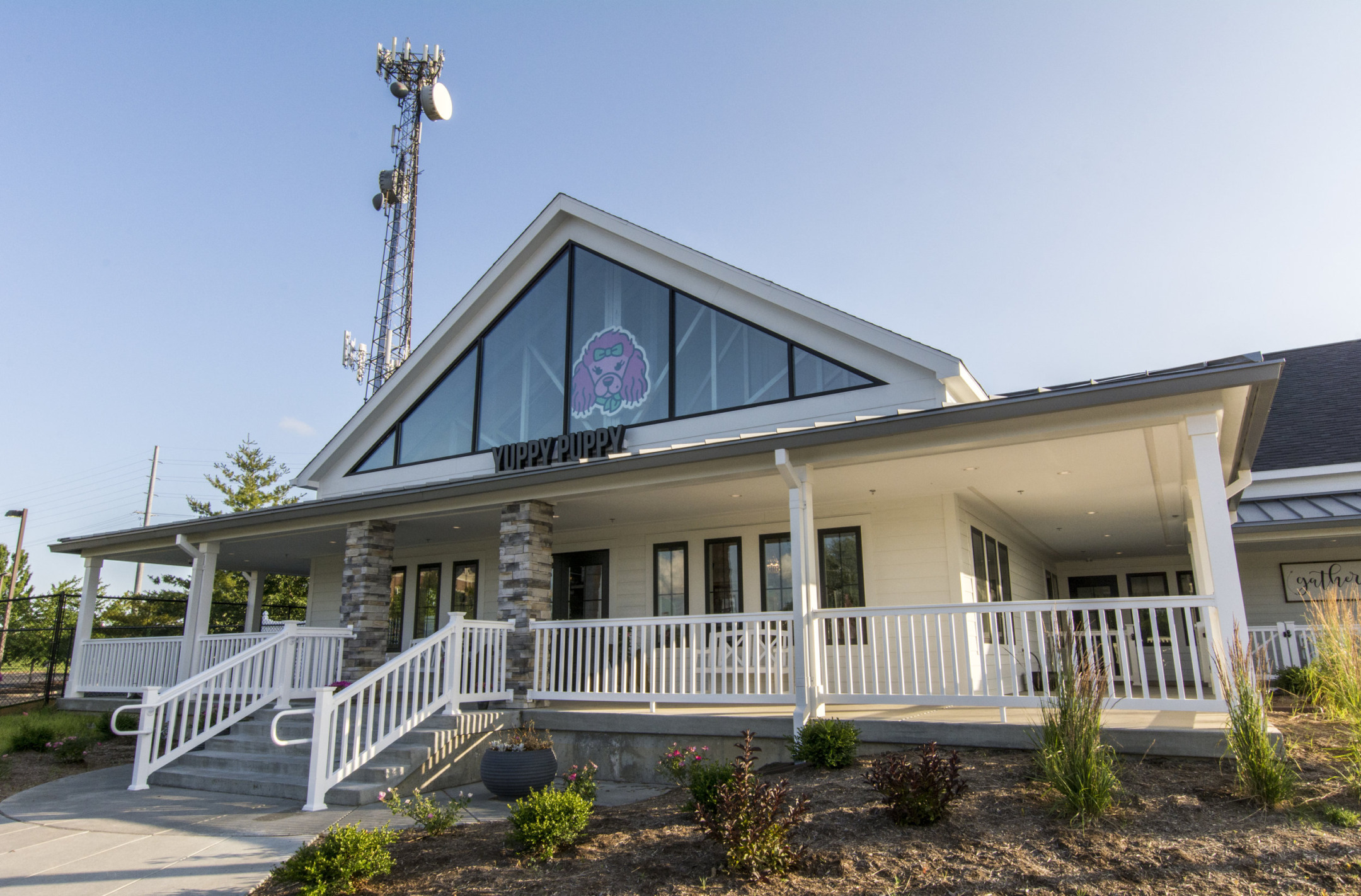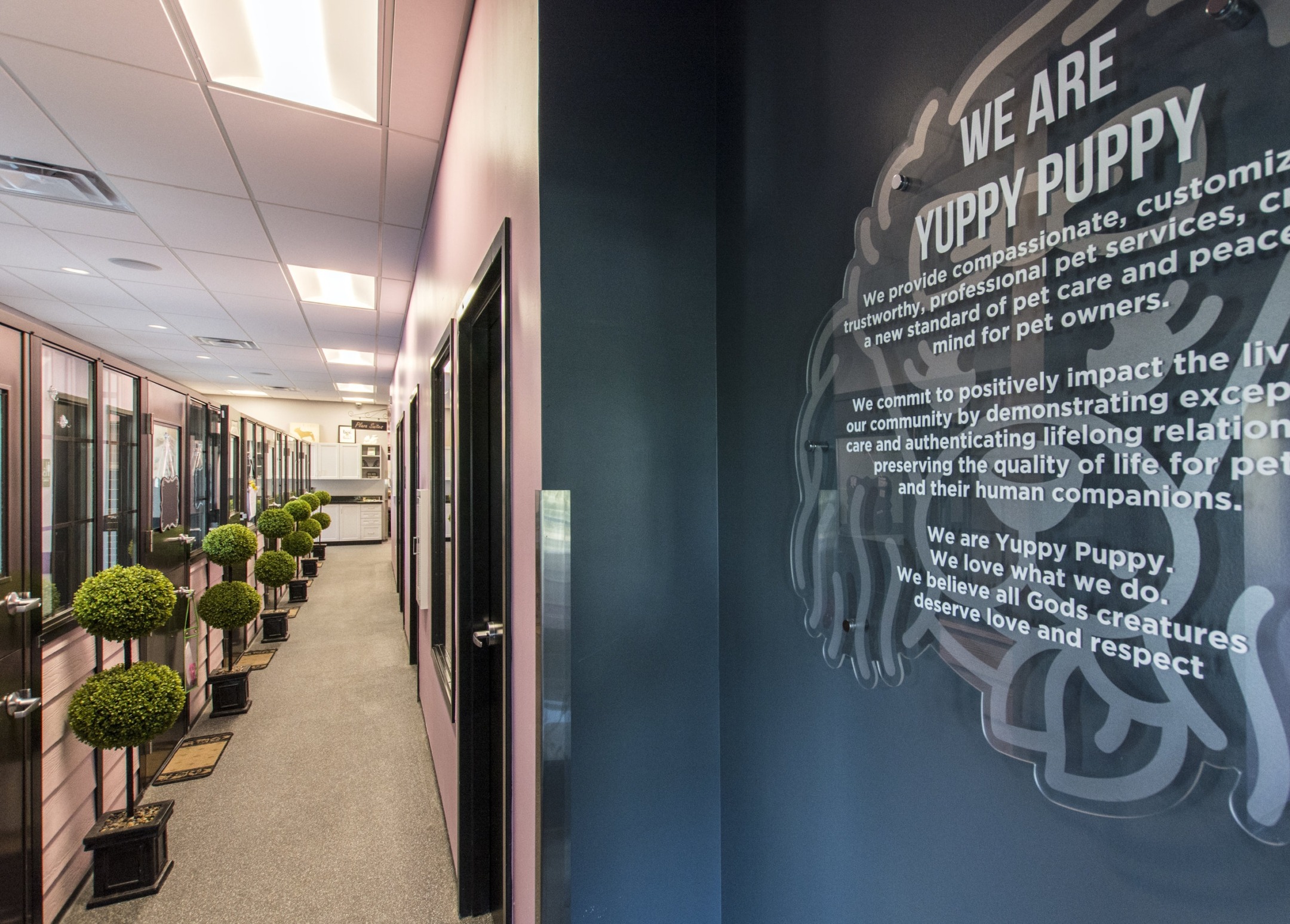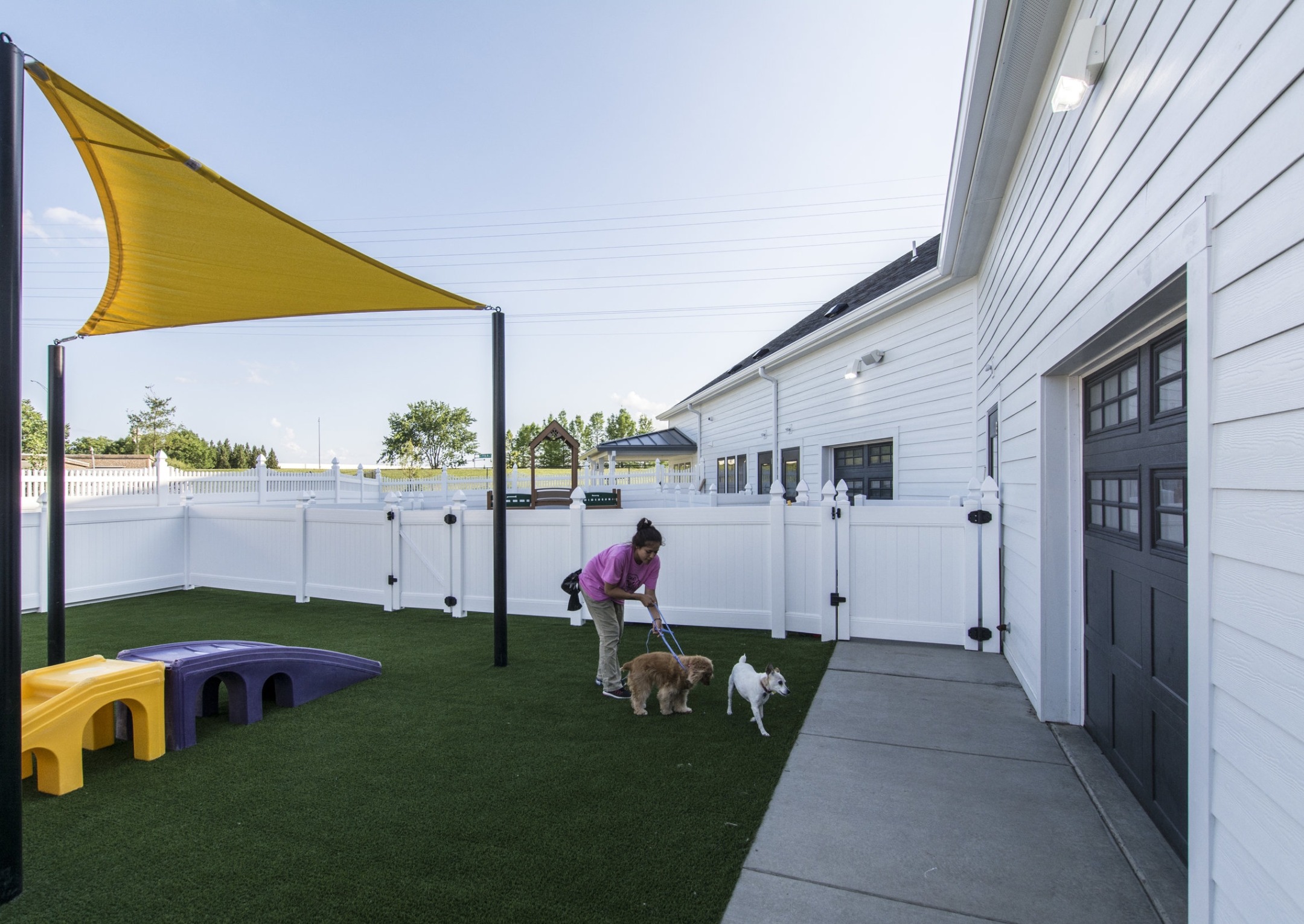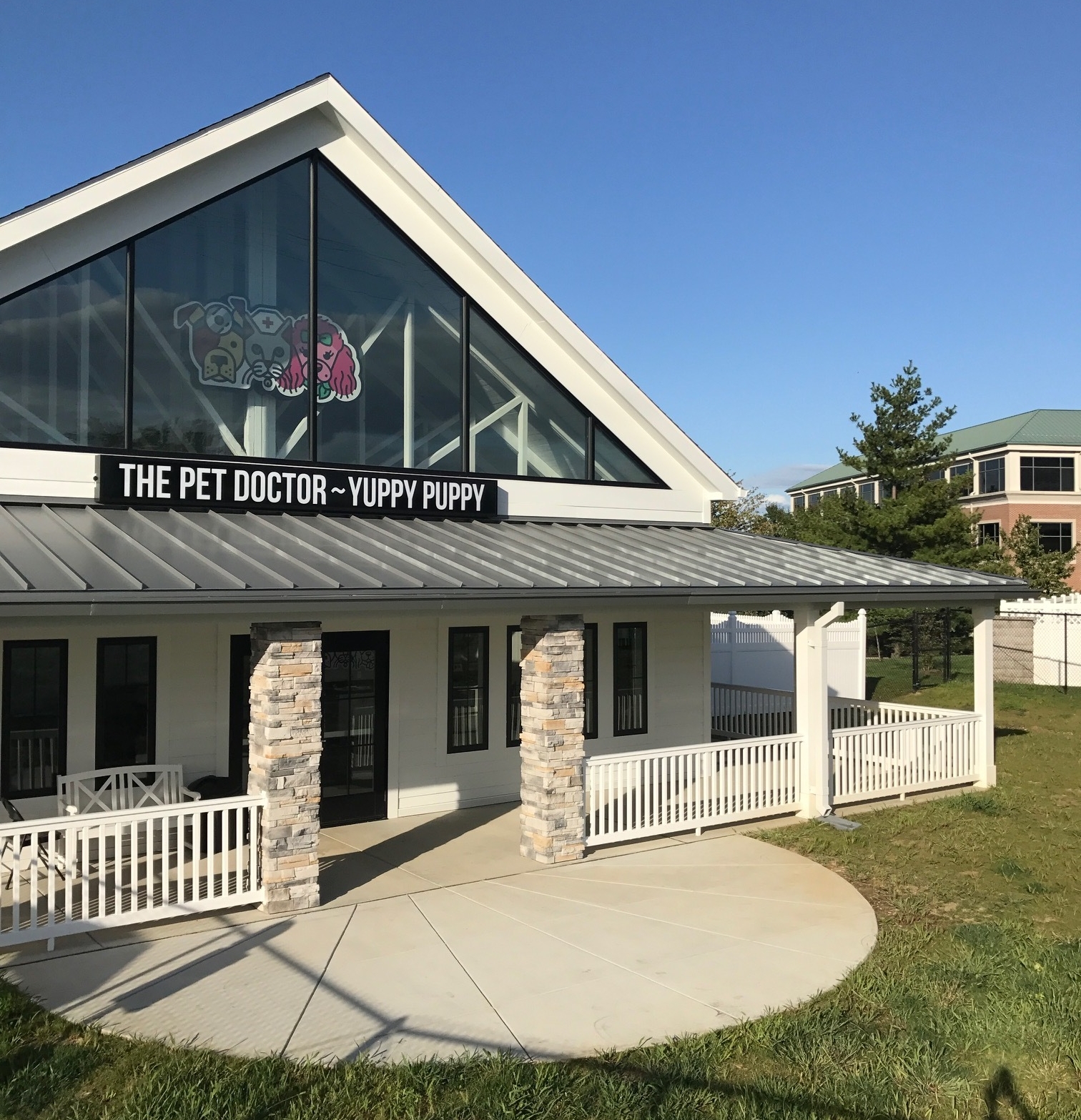
Is Your Pet Thinking: I Think Therefore I Am?
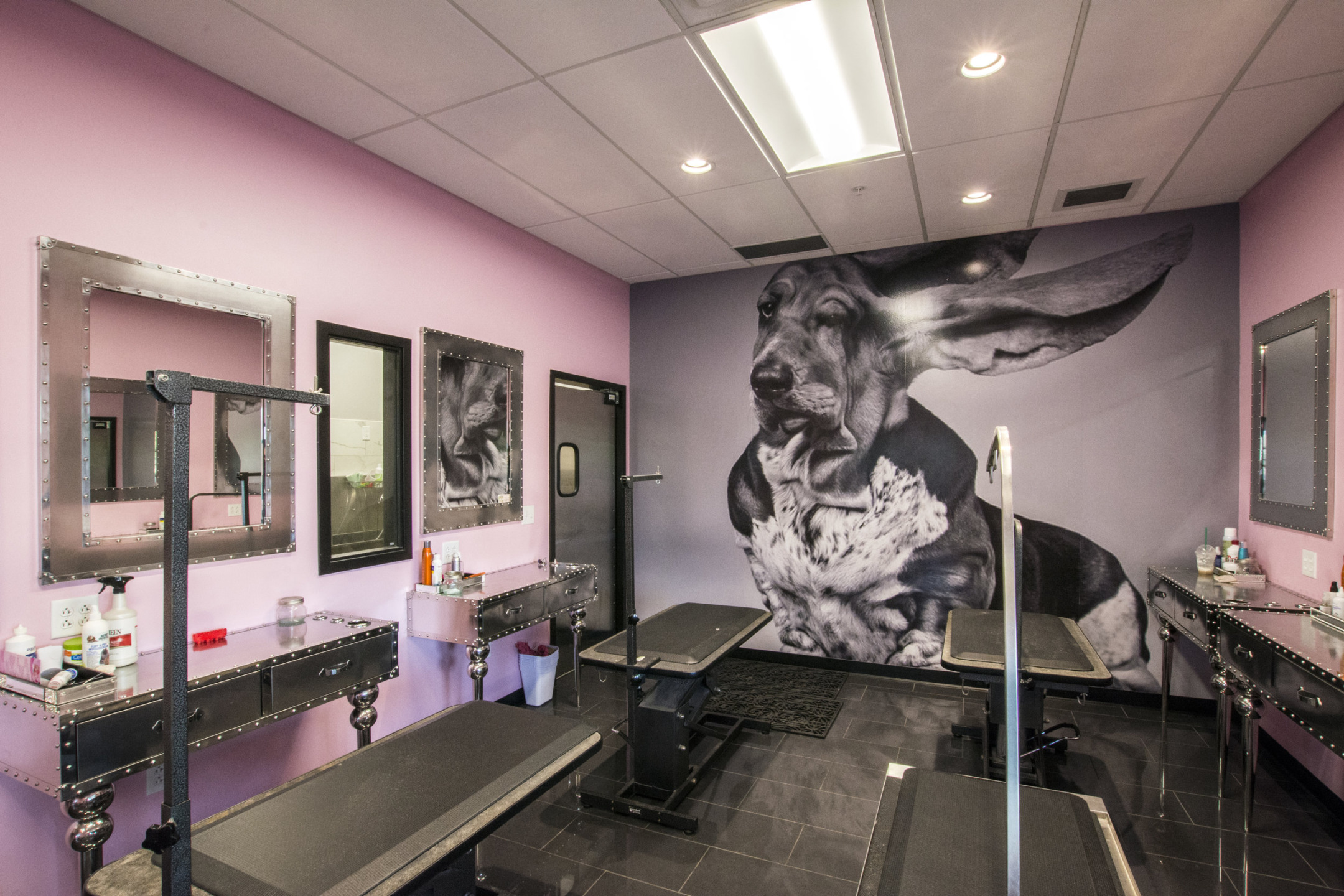
I wrote in a previous blog post about the book, “Are We Smart Enough To Know How Smart Animals Are?” by Frans de Waal, which demonstrated that our general view and treatment of animals (non-human animals) is based on poor science, poor ethics, and bad habits. Our (mis)treatment of non-human animals is an important indicator of our civility.
How does this issue relate to architecture?
JEMA’s work with The Pet Doctor and Yuppy Puppy Pet Spa could be easily overlooked, but if one wanders a bit deeper into each of these projects, we can see the illumination of a new path towards a more “humane” and civil treatment of animals. The owners have enlightened views regarding non-human animals and JEMA’s design challenge was to meet their goal of creating a place which engages the visiting animals’ social, emotional, and intellectual lives.
The Yuppy Puppy Pet Spa and The Pet Doctor are two separate businesses under one roof. Each design explores not only the rights of animals, but also their complexity as non-human animals. What is their emotional life? What is their relationship to nature? to sunlight? to color? to noise? to enclosure? These questions are becoming more and more important as we build more and more hospitals, treatment centers, and boarding facilities for non-human animals. The architecture of The Pet Doctor and the Yuppy Puppy Pet Spa seeks to deconstruct the poor, but historically persistent model for veterinarian and “animal” buildings: lifeless, clinical, and boring spaces.

The post-structuralist philosopher Jacques Derrida’s book “The Animal That Therefore I Am” is a “riff” on Rene Descartes’ famous “I Think Therefore I Am” statement. By playing off of Descartes’ famous words about the possibility of establishing the “I” or the “subject” due to our ability to think, Derrida is making a statement about what the nature of “I” is and do non-human animals deserve the same type of philosophical, and therefore, moral and ethical consideration. The book is based on a series of lectures that Derrida gave in 1997 and seeks to question the historic ontology of non-human animals. The ethics of animal slaughter, factory farming, meat consumption, and animal treatment as a whole are tackled here in a fundamental way that precedes ethics. He asks, like Frans de Waal, “do we even understand the being of non-human animals?” His response: not at all.

Derrida picks up where Rishabhanatha, the ancient Indian founder of Jainism and much later Jeremy Bentham left off: is our understanding and treatment of non-human animals completely wrongheaded? And subsequently, if we can be so “cavalier” with our attitude about non-human animals, what does this say about our relationship with each other, with our fellow human animals?

These are questions that are not easily answered, but we can start by making a decisive break with our past in designing environments for non-human animals. JEMA’s design for the Yuppy Puppy Pet Spa and The Pet Doctor are our first steps in redefining the built environment for our non-human friends.
